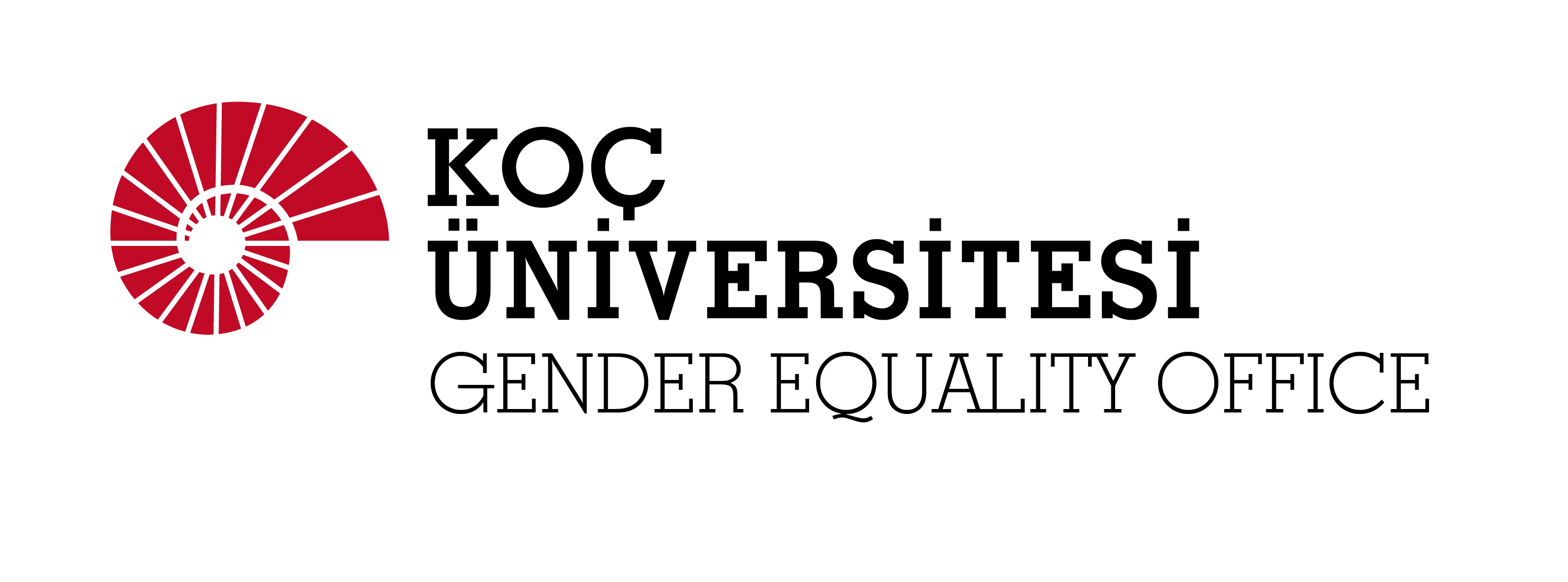Navigate the Inclusive Curriculum of Fall 2023
The Gender Equality Office proudly presents this curated poster series, embodying our commitment to gender mainstreaming in teaching and curriculum analysis. Developed and compiled by our team, it amplifies our dedication to increasing the visibility of gender-inclusive courses, aligning closely with the Gender Equality Plan’s objectives. Beyond gender inclusivity, these posters encompass a wide spectrum of inclusivity, spanning gender representation in cinema, animal ethics, and sustainability in corporate practices. This comprehensive approach underscores our dedication to fostering inclusive education and reflects the diverse ways inclusivity and equality lenses seamlessly integrate into educational curricula. Notably, three featured courses have received the Gender Inclusive Teaching Improvement Grant, reinforcing our commitment to inclusivity.
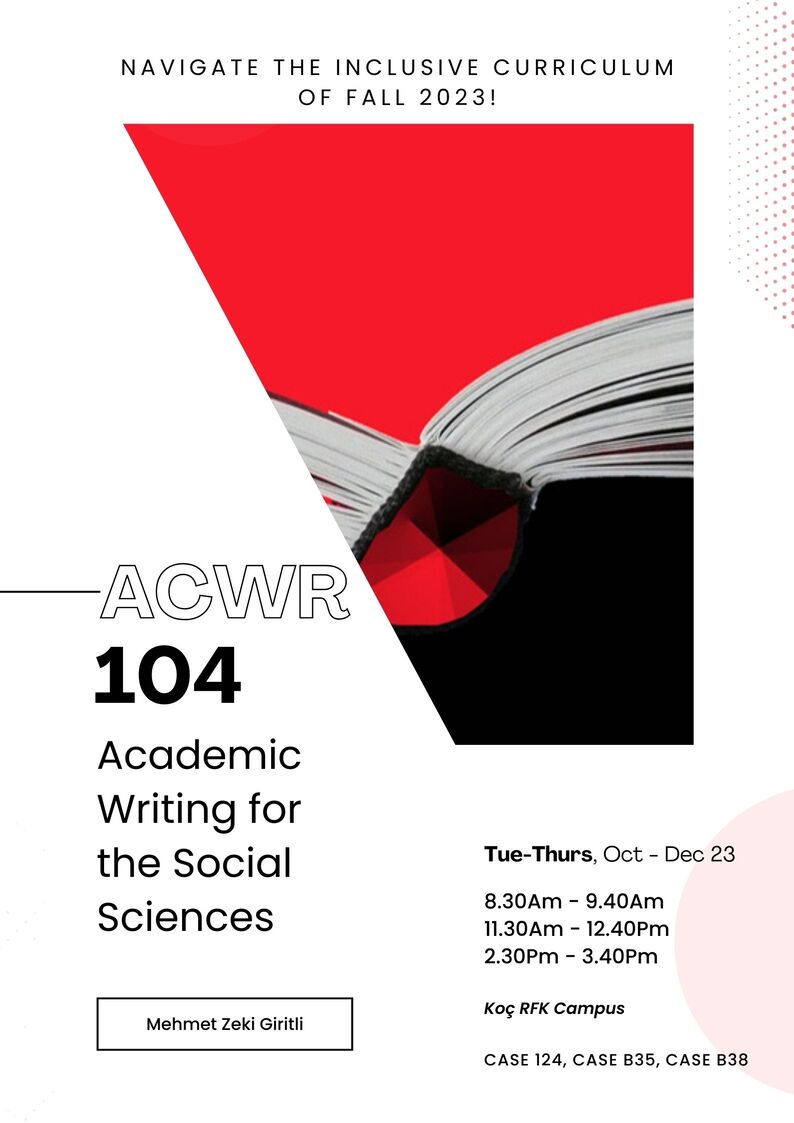
ACWR 104 – Academic Writing for the Social Sciences
Building on skills developed in ACWR 101, ACWR 104 presents more advanced reading and writing tasks while introducing students to the types of writing, research, and analysis used in the Social Sciences. This interdisciplinary course will explore the notions of identity focusing specifically on “gender studies”, will interrogate the myriad ways in which a subject’s identity is developed and affected by a lifetime of events and happenings as well as by social expectations and (unwritten) rules. The focus will be on the cultural implications of gender, specifically the representation of gender in cinema and media.
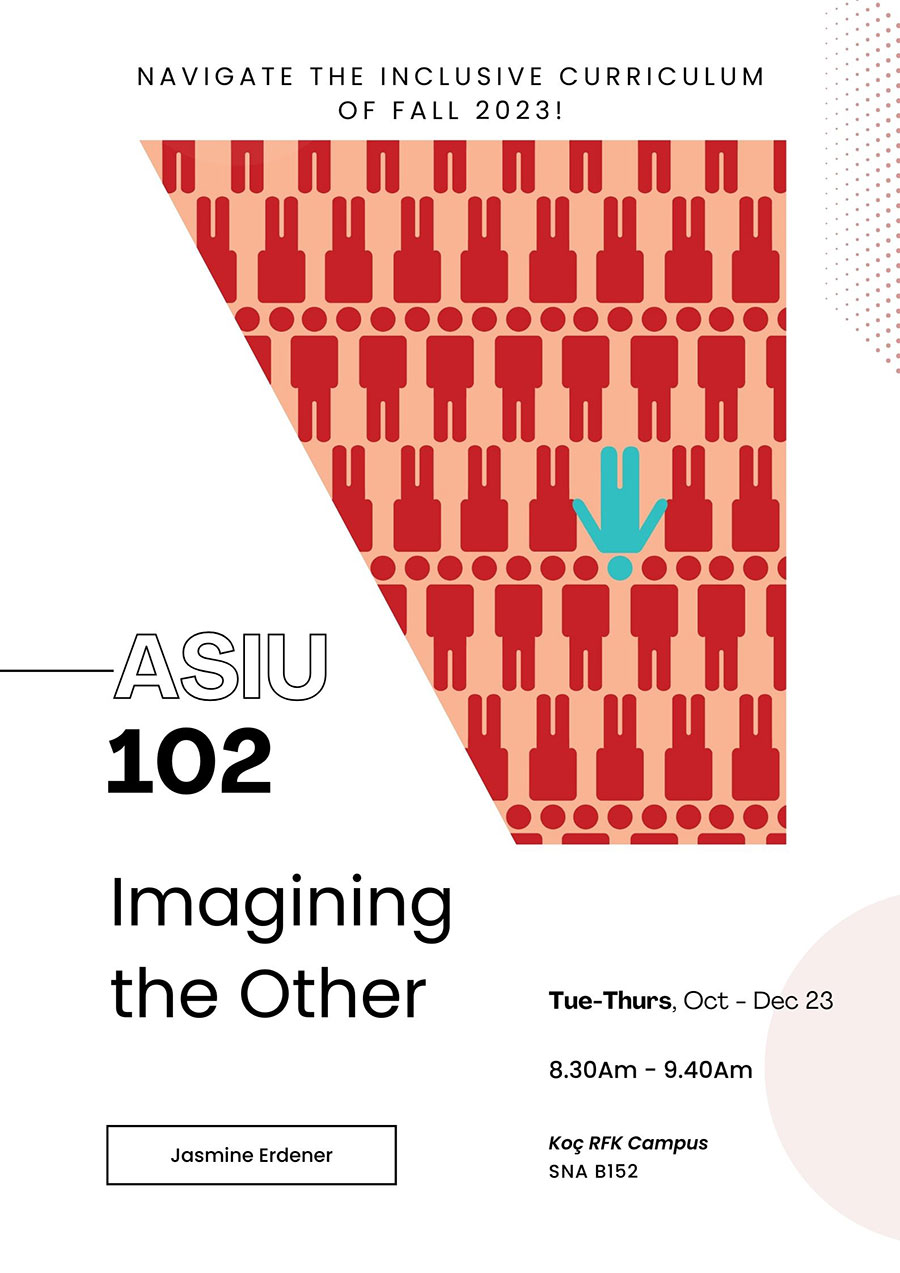
ASIU 102 – Imagining the Other
Examination of the definition of the ‘Other’, starting with the widespread description of the term as the processes by which social groups create boundaries and distinctions, often demonizing, dehumanizing, romanticizing, or exoticizing those who do not fit into their society. Exploring the notions of the Other represented in literature to canvas a human fascination with the foreign and the unknown, unlimited by time, place, or cultural context. Focusing on the ways of perception of the Other in socio-cultural, political, religious, geographic, ethnic, gendered, or racial terms in different cultures or time periods. Exploring human identity in relation to the Otherness of the monstrous, the animal, and the super-, sub-, or extra-human.
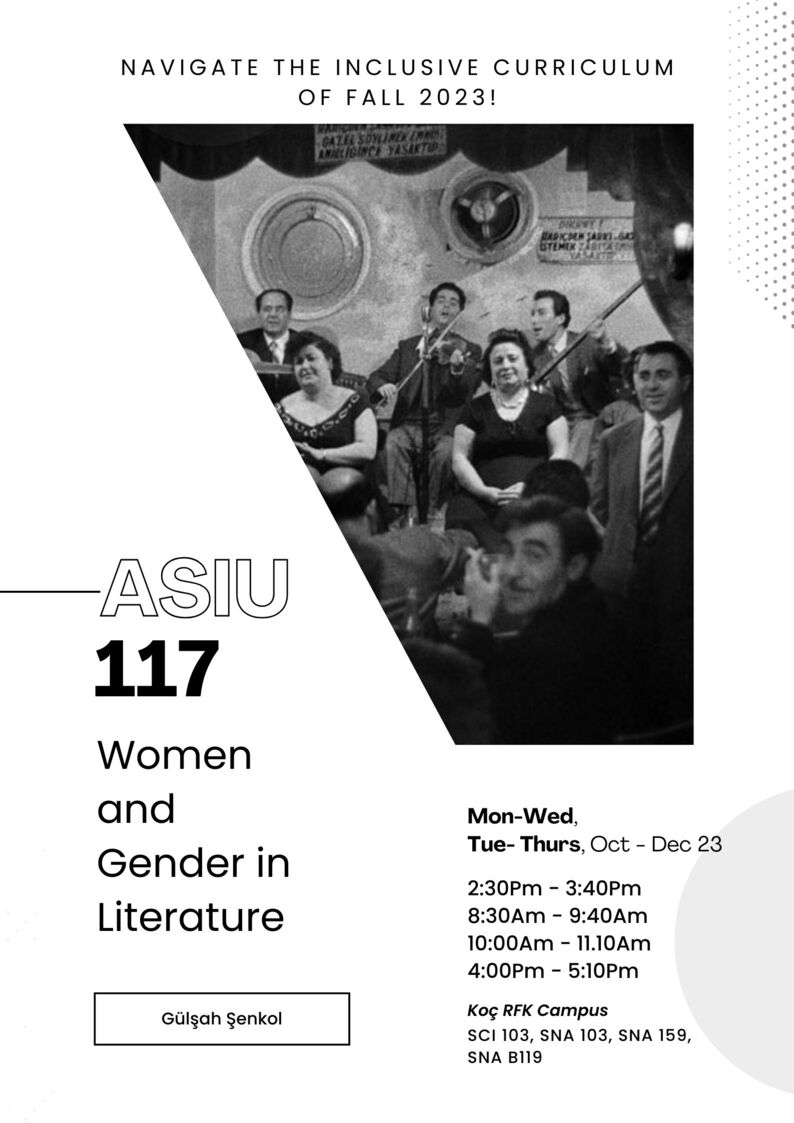
ASIU 117 – Women and Gender in Literature
An introduction to the various texts problematizing women’s relationship with identity, culture and society. A cross-cultural and interdisciplinary approach exploring the connection between gender, sexuality, class, race, religion and nationality as reflected in literature.
* Ara Güler, Beyoğlu Eğlencesi
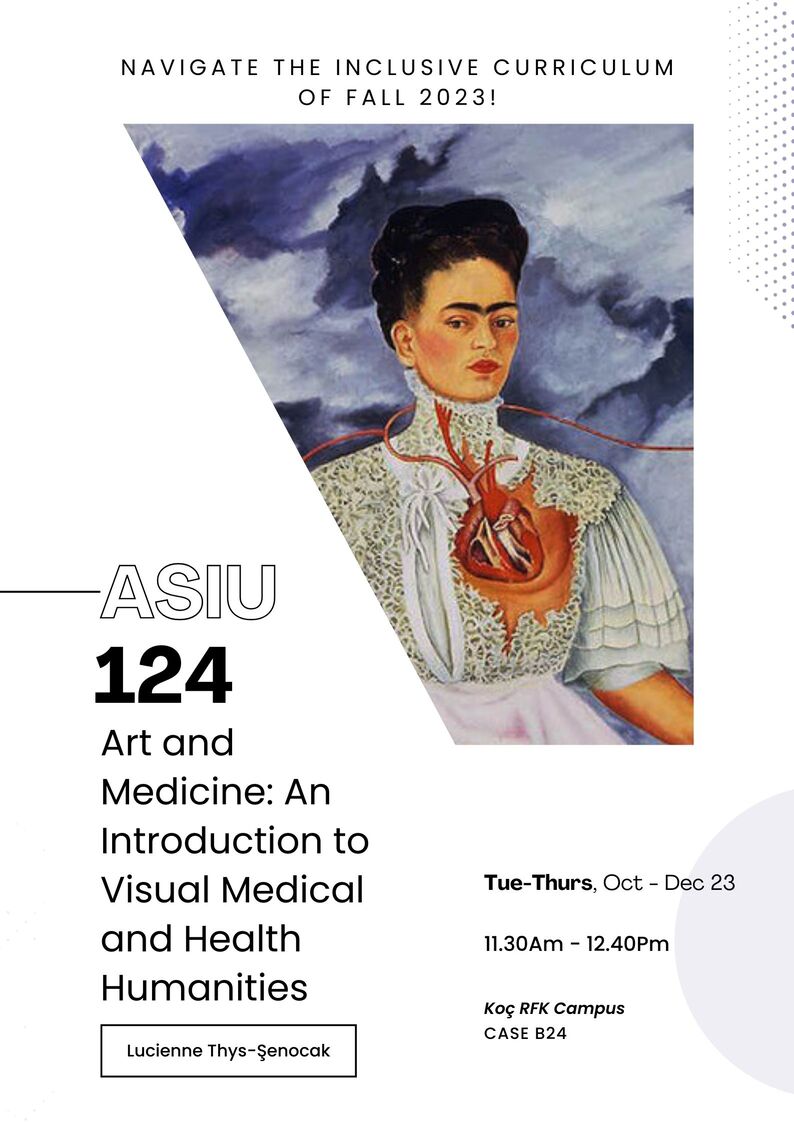
ASIU 124 – Art and Medicine: An Introduction to Visual Medical and Health Humanities
Explores the relationships between medicine, healthcare practices, the human body, and visual culture from Ancient Mesopotamia to present day Türkiye. An introduction to visual medical and health humanities, the human condition is examined using diverse works of art drawn from different eras, geographies, stylistic and cultural movements. Develops skills of critical observation, description, and creativity by studying works from the history of art that highlight medicine, healing, and healthcare.
*Frida Kahlo, The Two Fridas
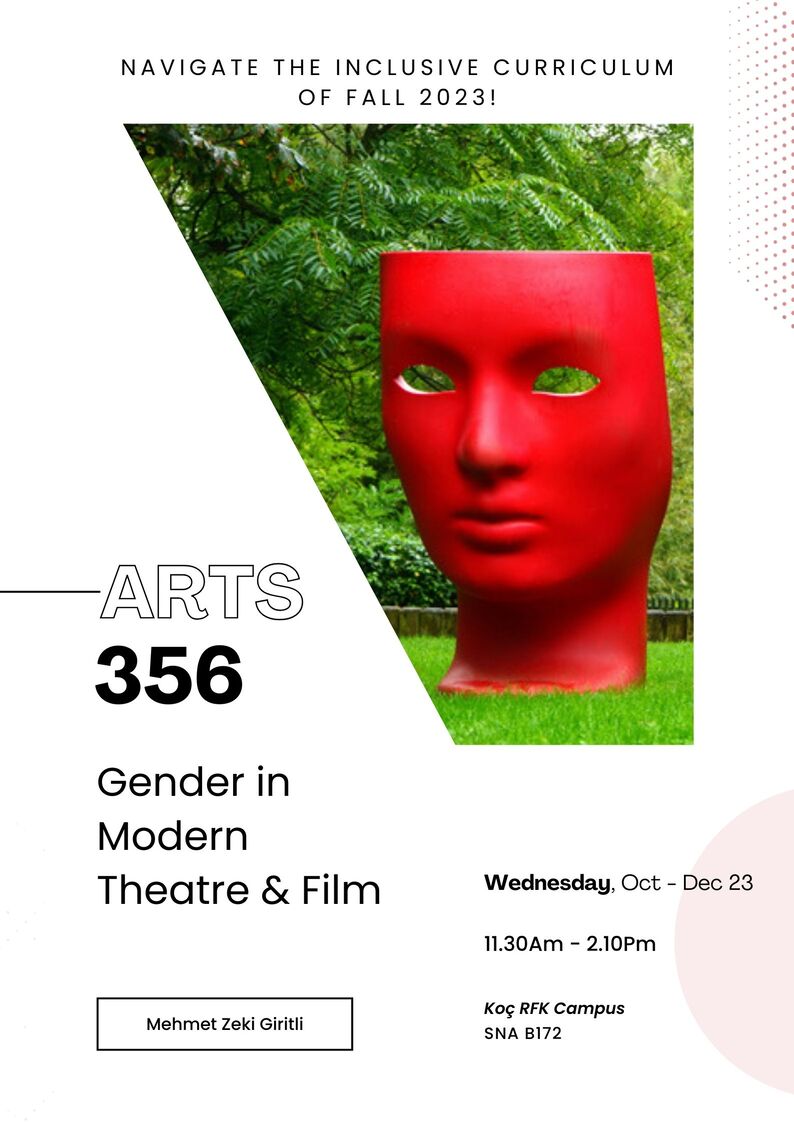
ARTS 356 – Gender in Modern Theatre & Film
This course explores the representation of gender and gender roles in theatre and film around the world. The course is designed to provide an insight to how gender roles are portrayed in theatre and film around different parts of the world, and how it reflects understanding of gender in various cultures. Through readings, discussions, and practical exercises, students will examine the ways in which gender shapes and is shaped by theatre and film, and will develop their own critical approaches.

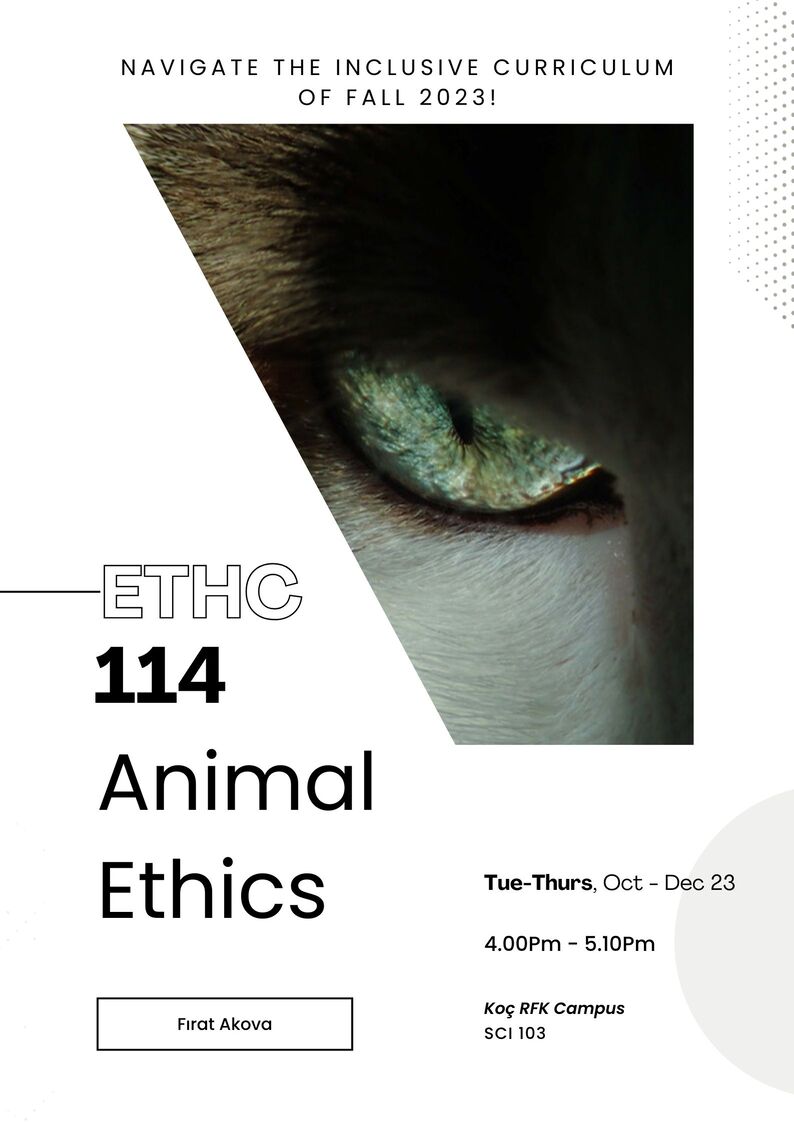
ETHC 114 – Animal Ethics
Introduction to the most influential views and arguments in animal ethics. General ethical theories and their applications to animal ethics; animal psychology; the ethics of pet ownership; the ethics of animal use in scientific research; consumer ethics; ethics of animal activism.
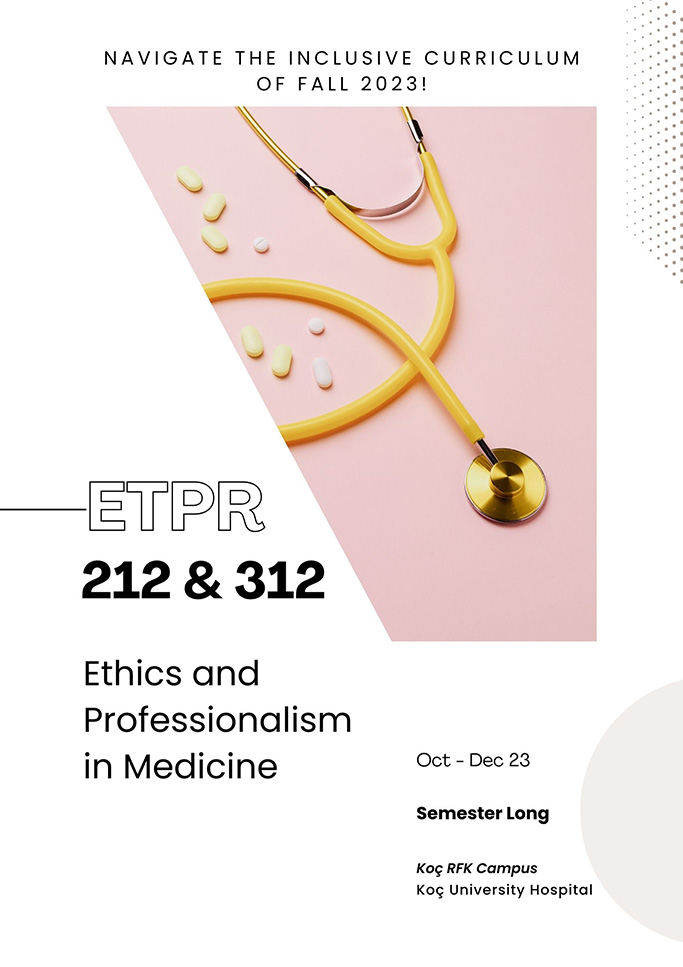
ETPR 212 – Ethics and Professionalism in Medicine
This course aims to enable school of medicine students to develop effective and appropriate patient-centered consultation, learn ethical principles, develop professionalism and physical examination skills that are necessary for good clinical practice with learning sessions in small groups and short role-plays with both the instructor/s and their peers. The course covers training on clinical skills in the skills laboratory located at the main campus and the Koç University Hospital. Additionally, this course has a dedicated critical session on diversity, inclusion, and equality.
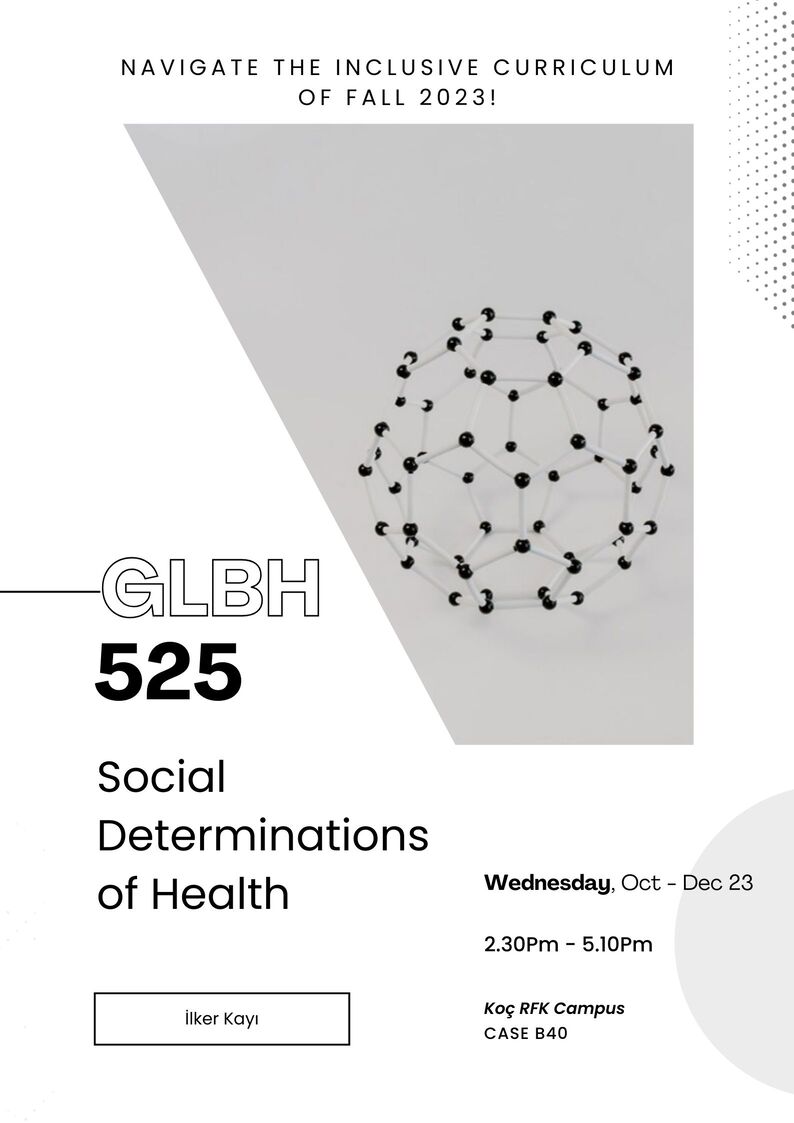
GLBH 525 – Social Determinations of Health
This course aims to define and systematically examine the social determinants that affect health. The focus of the course is to discuss the social determinants of health in a social, economic and political context with a methodological approach. In this course, the factors affecting the health of the societies living in rich and poor countries and the systems that affect the health of the society in different parts of the world are evaluated with a critical perspective. Health inequalities, early life, physical environment, unemployment, nutrition, migration and minorities, elderly life, religion, beliefs and values related to health and inequality are discussed with a conceptual and methodological approach.
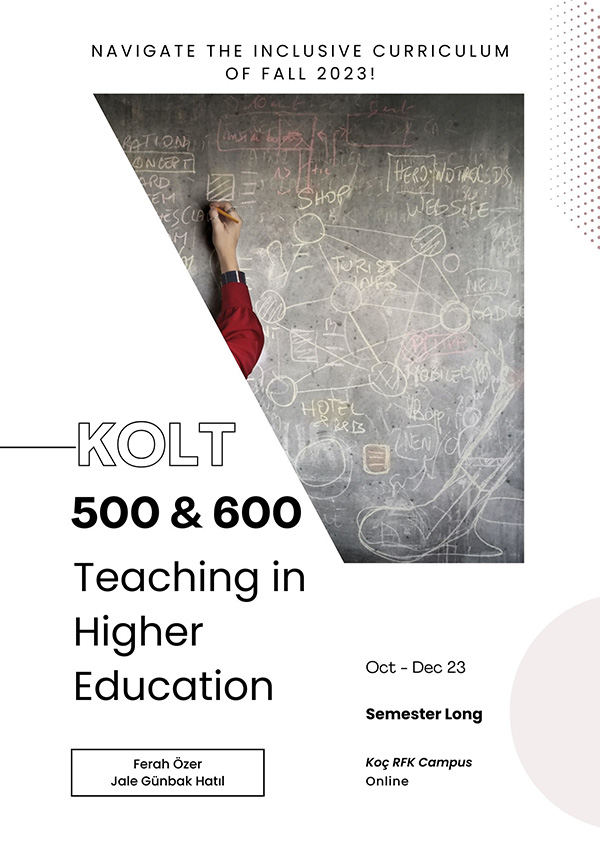
KOLT 500 & 600 – Teaching in Higher Education
Foundations and basics of designing effective teaching environments for higher education courses, learning principles, teaching in English, integrating learning technologies into teaching practices, grading, communicating with students and instructors, and superdiversity and gender sensitive pedagogy.
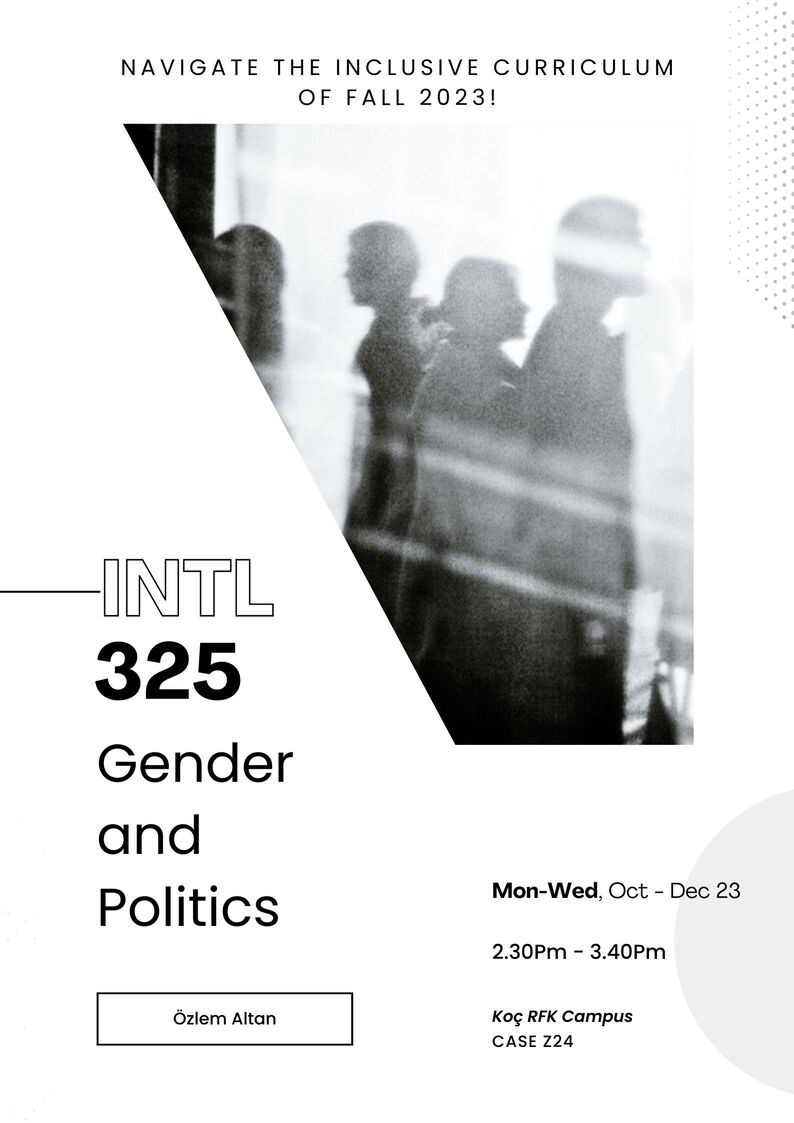
INTL 325 – Gender and Politics
This undergraduate seminar critically explores a variety of political, social, and economic processes through a gendered perspective. The class revisits issues of politics and political economy by focusing on various inequalities that govern the lives of men and women in their everyday lives. The course material is organized so that we discuss themes such as, but not limited to, nation-state formation, citizenship, labor, and development.
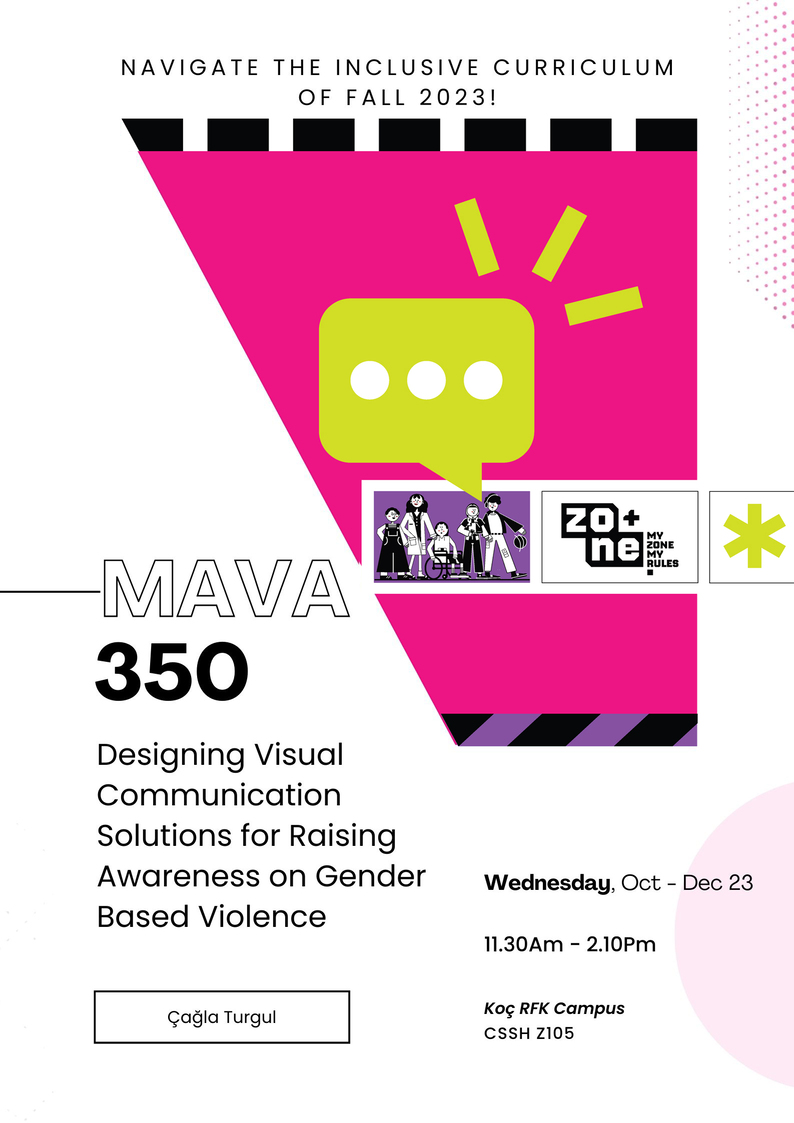
MAVA 350 – Designing Visual Communication Solutions for Raising Awareness on Gender Based Violence
This course explores effective visual communication strategies to develop impactful media designs-advertising campaigns and visual communication design products- that raise the issue of gender-based violence, specifically intimate partner violence, and issues related to consent, within the context of Koç University campus. Through collaborations with CSSH Faculty and professional from related fields, via discussions, talks and workshops, students will develop a critical understanding of gender-based violence and its underlying causes to create impactful visual campaigns that raise awareness to prevent incidents, support survivors and promote positive change within the campus community.

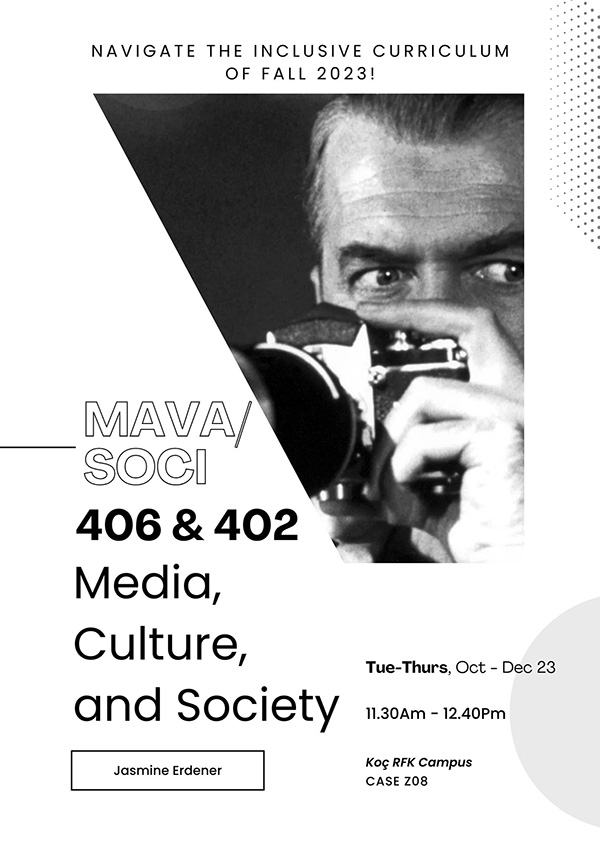
MAVA 406 / SOCI 402 – Media, Culture and Society
Major social scientific theories and concepts that examine mass media and computer mediated communication. Use of foundational and contemporary concepts to examine the role of communication and information technologies in shaping interactions among economics, politics, culture, and the broader society. Study of media and communication as objects of social scientific inquiry in relation to issues such as politics of representation, social movements, inequality, affect, and the state.
*Film still from Alfred Hitchcock’s Rear Window
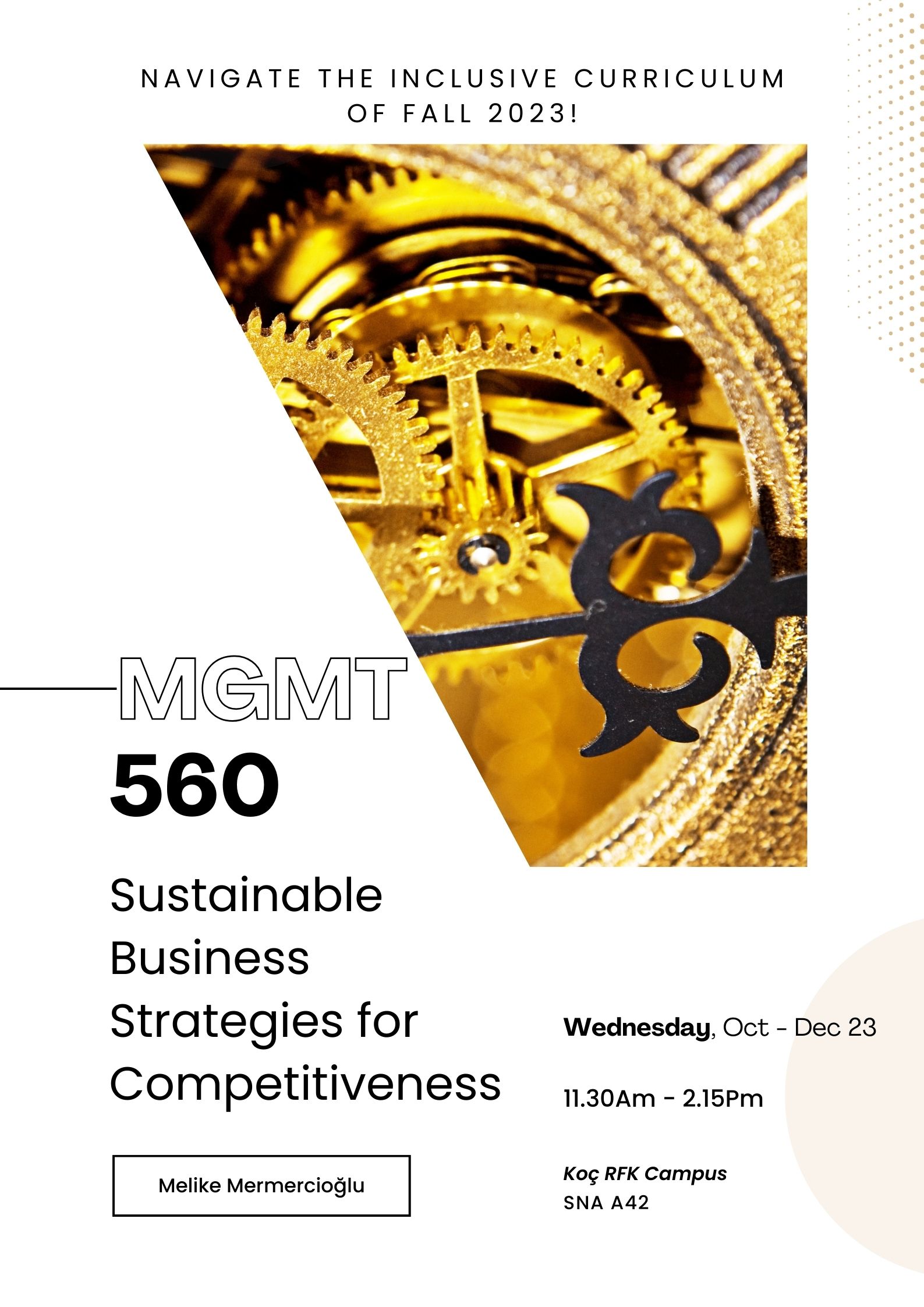
MGMT 560 – Sustainable Business Strategies for Competitiveness
This course is designed to provide the organizations with a new and extended view regarding their role in generating strategies to produce sustainable solutions to environmental, societal and economic problems while enhancing their competitiveness at the same time. Gender equality and inclusion is one of the core issues covered in the overall scope of the course.

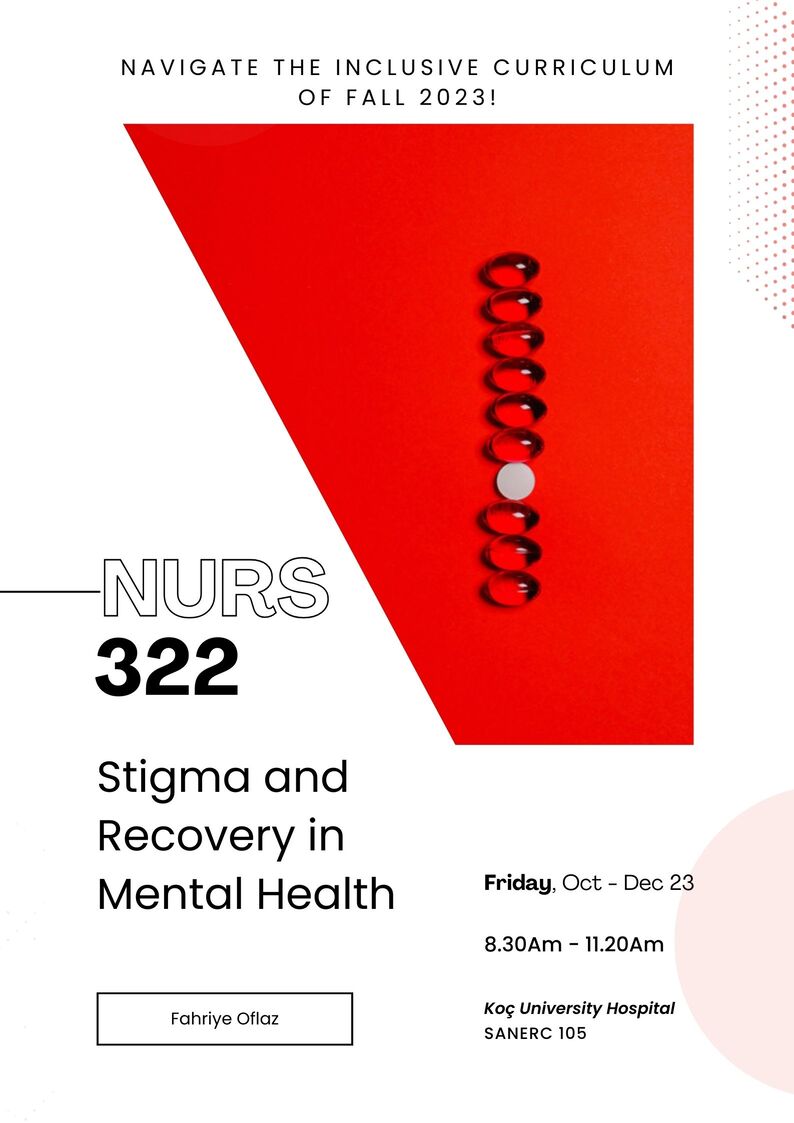
NURS 322 – Stigma and Recovery in Mental Health
Recovery models for psychiatric disorders, community inclusion, psychiatric rehabilitation, stigma, stigmatized mental disorders, effects of stigma on individual, family and society, prevention of stigmatization and fight against stigma. In this course, the student will examine rehabilitation and community participation studies for individuals with a diagnosis of mental disorder, and the models of recovery related to mental disorders. It is aimed to raise awareness about the difficulties experienced by one and the families diagnosed with mental disorder due to stigma and to discuss methods of fighting with stigma.
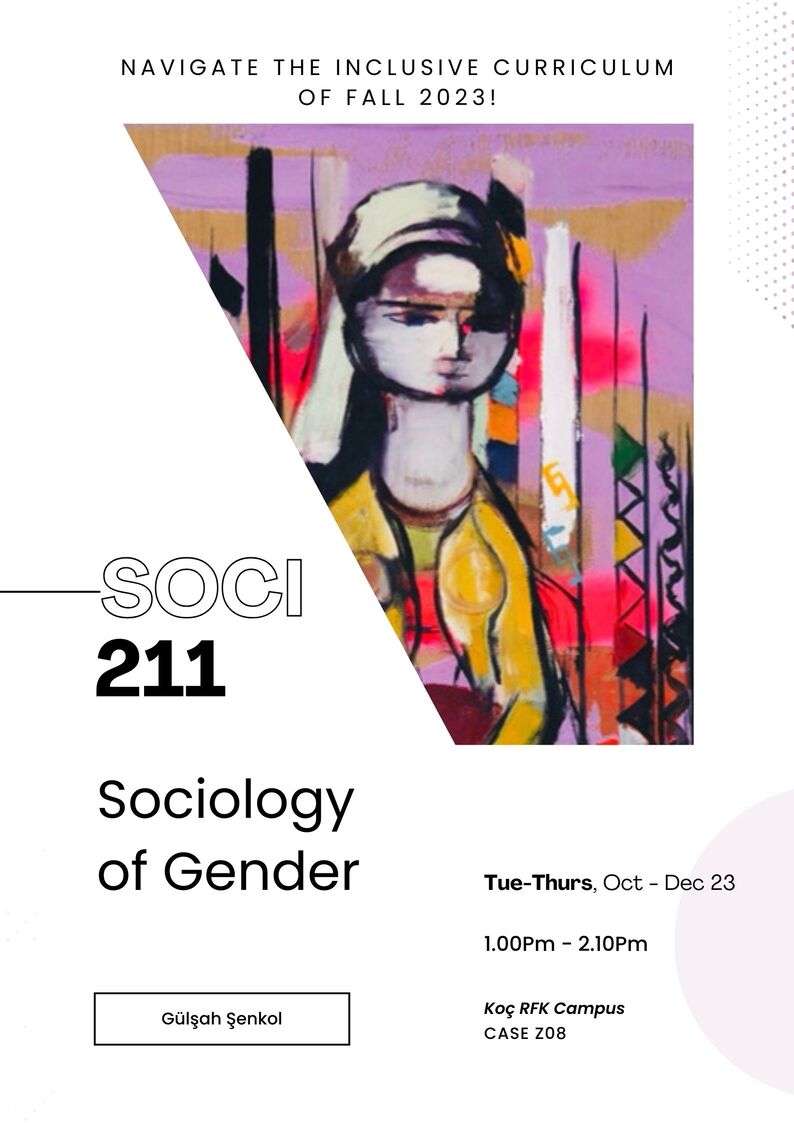
SOCI 211 – Sociology of Gender
This course examines gender as a major organizing principle in social life. Particularly, it focuses on how gender identities are socially constructed and how gender intersects with ethnicity, nationalism, class, sexuality, age and other dimensions of identity and social inequality. It also investigates the roles of family, education, the media, politics, economics and religion in shaping gender identities and inequalities.
* Eren Eyüboğlu, “Sazlı Kadın”
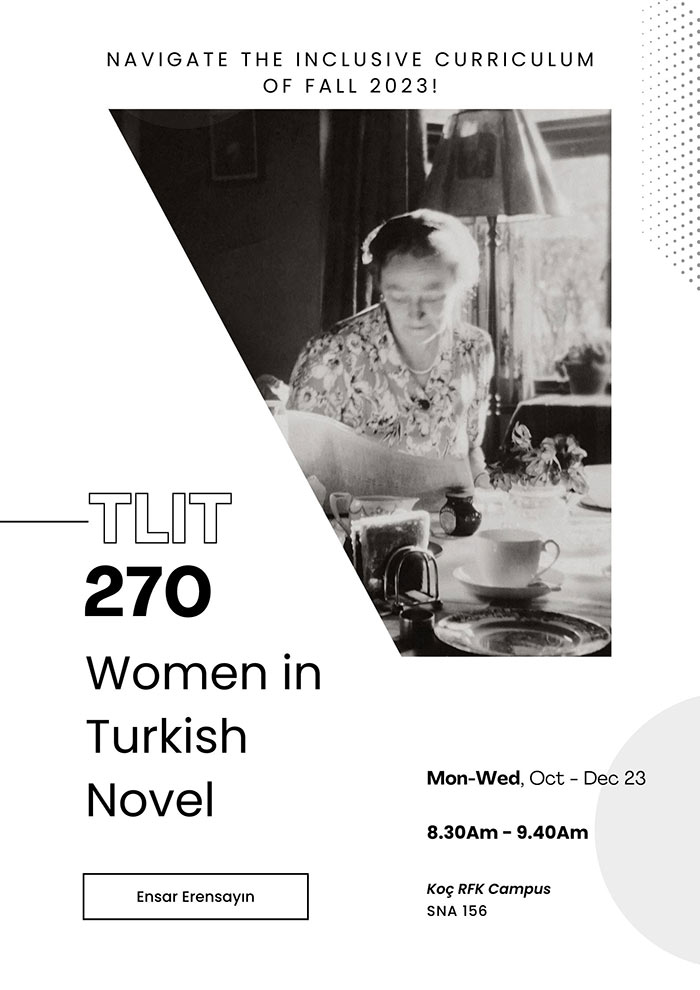
TLIT 270 – Women in Turkish Novel
This course aims to study the female characters and stereotypes in Turkish literature through the angle of feminist literary criticism. In the beginning, we will discuss concepts such as woman as writer, and woman as reader. We will then move on to an examination of female characters in the major works of Turkish literature to reveal the sexist approaches in these works. Topics discussed during the course will also include the revision of women’s literature in the light of the discussions around language and gender.
